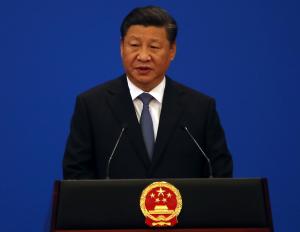Nov. 26 (UPI) — China is planning an underwater sea base, a latter-day “Atlantis” that runs on artificial intelligence that could aid Beijing in defense operations in the South China Sea, according to a recent press report.
The South China Morning Post reported Monday China is building the center that could become the “first artificial intelligence colony on Earth.”
The project is named after the ancient Greek underworld of Hades and was launched at the Chinese Academy of Sciences in Beijing.
Chinese President Xi Jinping may be behind the project. In April, during a visit to a deep-sea research institute at Sanya, Hainan Province, Xi told scientists to do something never done before.
“There is no road in the deep sea, we do not need to chase [after other countries], we are the road,” he had said, according to the Post.
The project includes underwater docking platforms and robot submarines to survey seabed. Communication and power cables will connect the base to a ship or power platform.
China could operate the complex from the Manila Trench, in the South China Sea, a highly disputed body of water where Beijing has built and militarized artificial islands.
China also wants to built 20 floating nuclear power plants in the South China Sea by 2020 — a potential violation of international law.
A United Nations court ruled in 2016 China has no historical rights to the South China Sea, an international body of water.
The arbitration case was brought to the U.N. in 2013 by the Philippines, during former President Benigno Aquino III’s term of office.
Manila’s policy in the South China Sea has changed dramatically since Philippine President Rodrigo Duterte’s meetings with Xi.
The two sides agreed last week to cooperate economically and signed a memorandum of understanding on oil and gas cooperation, the Philippines’ ABS-CBN News reported Monday.
Critics have said the deals are a debt trap for Manila, a claim Chinese officials have said has no grounding in reality.
“Those projects are proposed by the Philippine side, are economically viable and are positive for the Philippine economy,” said Tan Qingsheng, charges d’affaires at the Chinese Embassy in Manila.

COMMENTS
Please let us know if you're having issues with commenting.